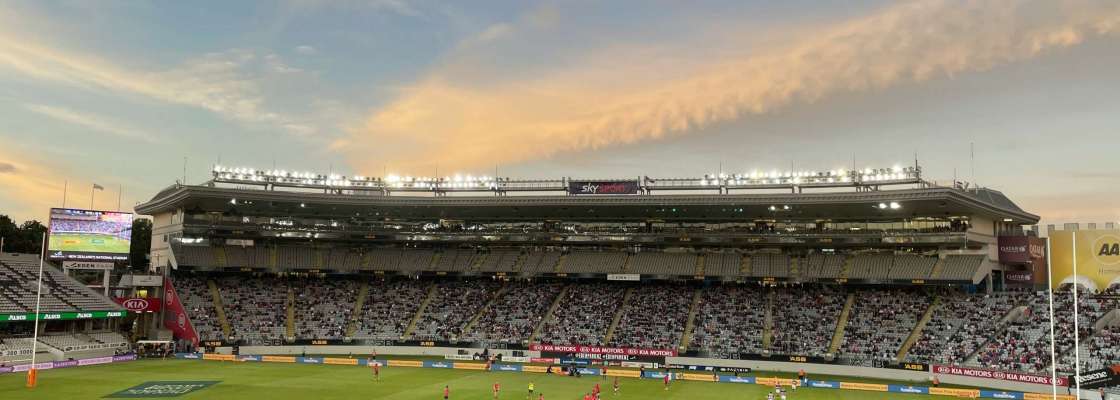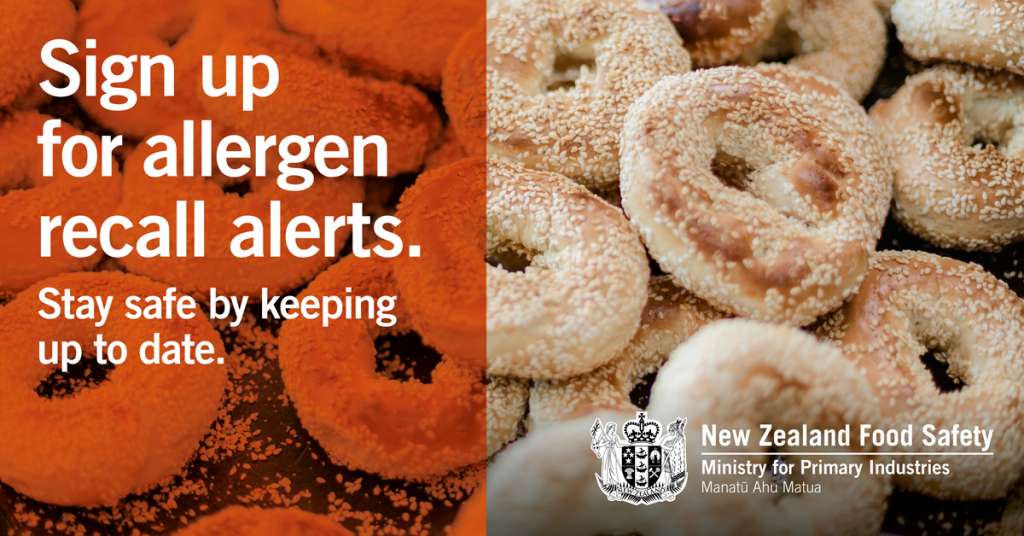November 2025
Hospitality Regulations Review
Costs, and barriers to market entry, expansion, and innovation
Have any of the businesses you represent needed to raise their prices due to regulatory compliance costs in the past three years (i.e., since January 2023)?
Yes
What regulatory compliance costs caused this? Please be as specific as possible:
Food Safety
The Restaurant Association has received a large amount of feedback from our members. They say that the fees, charges and levies they face are too expensive. While we understand that Food Safety NZ has costs it needs to recover, the current fee distribution system is inequitable for micro or small sized food businesses, as it operates on a ‘per-site’ basis.
In our submission on cost recovery proposals last year, we recommended an alternative allocation of cost recovery levies based on business size. These would more fairly distribute financial load on food businesses for costs associated with managing our food safety regime. Our proposal was not
adopted. The Domestic Food Business Levy is set to increase each year. It will increase to a total of $115 per site per year from 1 July 2027.
Local Alcohol licence fees
While we recognise that legislation set the licensing fees 11 years ago and that Councils across the country need to recover costs, the Restaurant Association maintains that councils should not impose drastic fee increases on businesses simply because they delayed adopting an alcohol fees bylaw. The approach to alcohol licensing fee increases has varied drastically between Territorial Authorities. Some are proposing and adopting immediate increases that almost triple the amount a business must pay to apply for a licence or a renewal.
Through the adoption of alcohol fees bylaws, some councils have also explored removing the ratepayer contribution to cost recovery. Arguments against retaining a ratepayer contribution often cite the user-pays intention of the Act as justification for complete (or almost complete) cost recovery through
licensing fees. We submit that ratepayers are part of the user-pays licensing system. Rather than relying on venues to increase prices to cover fee increases, the Council should support access to affordable hospitality for all through its setting of fees. The Restaurant Association submits that all
Councils should retain a ratepayer contribution of 30% to alcohol licensing fees. This recognises the contribution of well-managed hospitality venues to the life and economy of communities, and the societal value of having facilities available where people can go to enjoy themselves while drinking safely and responsibly.
On a scale of 1 – 4, how do current regulatory settings influence the ability of the businesses you represent to innovate?
4 – They impose significant barriers to innovation
A key example of barriers to innovation is the inability of a business to sell their own sauce. During COVID, authorities introduced exemptions that made it easier to sell commercially prepared foods for takeaway, but once those orders expired, regulations reverted to their pre-COVID state. Anecdotally we’ve had members raise this issue, where they have a special sauce that is a part of certain dishes, and customers will often encourage them to sell it or ask if they can buy a bottle — yet they have decided that the amount of paperwork and scale of the fees required just to amend their food plan to be able to sell one new item like a sauce is not worth the return they would get from those sales.
Further, commercial kitchen licences provide little flexibility when it comes to testing new products or approaches to food preparation. As noted by Business NZ in their Reducing Compliance Burden on New Zealand Small Businesses report, a food producer may have a licence to cut fruit and vegetables for jams or pickles, but has to apply for a variation on their license to sell cut produce like halved pumpkins. We support their recommendation to allow limited trials for new products, which would enable market testing before requiring full compliance, and providing a practical streamlined licensing process to cover “associated/similar activities”.
On a scale of 1 – 4, how do current regulatory settings influence the ability of the businesses you represent to enter the market or expand?
4 – They impose significant barriers to market entry and / or expansion
Many people consider it easy to set up a hospitality business. However, the extensive paperwork and high fees required at the very start—beginning with the food control plan—reflect the ongoing administrative and regulatory burdens involved in opening and running one.
When a hospitality business owner eventually turns their mind to growth and expansion, that very first roadblock they experienced — the food control plan — presents further issues, with the amount of work required to amend a plan often acting as a barrier to innovation and growth.
The day-to-day requirements that apply to hospitality businesses
Overall, how would you rate businesses’ understanding of the day-to-day requirements that the government places on hospitality businesses?
- Knowledge of regulatory requirements – Food safety requirements: Know them well
- Knowledge of regulatory requirements – Sale and supply of alcohol requirements: Know them well
- Knowledge of regulatory requirements – Health and safety at work requirements: Know them well
- Knowledge of regulatory requirements – Building and premise requirements (including fire and emergency requirements): Know them well
- Knowledge of regulatory requirements – Transport requirements: Know them well
- Knowledge of regulatory requirements – Employment requirements (e.g., ACC, tax, and leave requirements): Know them well
- Knowledge of regulatory requirements – Consumer protection requirements (e.g., fair trading requirements, consumer guarantees): Know them well
For each of these day-to-day requirements, do you think they work well, need minor changes, or need major changes?
Changes required to regulatory settings – Food safety requirements: Need major changes
Changes required to regulatory settings – Sale and supply of alcohol requirements: Need major changes
Changes required to regulatory settings – Health and safety at work requirements: Need minor changes
Changes required to regulatory settings – Building and premise requirements (including fire and emergency requirements): N/A – Requirements are not relevant to the businesses we represent
Changes required to regulatory settings – Transport requirements: N/A – Requirements are not relevant to the businesses we represent
Changes required to regulatory settings – Employment requirements (e.g., ACC, tax, and leave requirements): Need major changes
Changes required to regulatory settings – Consumer protection requirements (e.g., fair trading requirements, consumer guarantees): Need minor changes
If you think that changes should be made, why?
It takes too much time to comply with the requirements, It costs too much money to comply with the requirements, The requirements are difficult to understand, The requirements are not specific or strong enough, The requirements don’t make sense for my situation, The requirements are enforced too strictly, The requirements are not enforced consistently.
Changes you think should be made:
The Restaurant Association’s overarching position on regulation is that current requirements do not reflect actual risk profiles or a practical understanding of the environments in which our businesses operate. Commentary on specific requirements is available below.
Food safety requirements
The Association acknowledges the Minister of Food Safety’s efforts to improve the Food Act and urges this work to continue, as it addresses the area most in need of improvement and could have the greatest positive impact if handled effectively. As noted in our response to questions eight and nine, the difficulties imposed by existing requirements for food control plans require a significant amount of time and money to comply with.
While there may be some difficulty in understanding the requirements by businesses, we submit that a large part of the issue with interpreting the Food Act sits with regulatory agencies. In particular territorial authorities – who are renowned for their differing interpretations between territorial authority, or
in the most extreme cases, differing interpretations between inspectors within the same Council. If those responsible for interpreting and enforcing the law cannot agree on the requirements for our businesses, businesses should not face penalties for being confused—or for following guidance from one inspector only to be penalized by another whose interpretation differs.
Sale and supply of alcohol requirements
The Restaurant Association recognises the need to ensure the sale and supply of alcohol is undertaken safely and responsibly. However, we are concerned that the rigid risk rating formula contained in the Sale and Supply of Alcohol (Fees) Regulations 2013 is out of date and no longer matches the realities of modern hospitality environments.
It is important that legislation and bylaws recognise there is not only a difference between on- and off-licence venues, but that there is also a difference between types of on-licence venue: for example, both a night club and a restaurant are on-licence venues, but prima facie these businesses have two very
different risk profiles. We therefore believe that a more fulsome review of the risk rating of premises within the regulations to better reflect the actual risk of harm.
This review should include the apparent penalty for opening under extended hours. Compared to international standards, New Zealanders traditionally eat dinner and go to bed earlier than many countries around the world. As an industry that relies heavily on international tourism to thrive, our
hospitality businesses need to be able to make operating decisions that service a wide variety of customer preferences – from the regular who lives down the road, to the group of friends visiting from overseas who are looking for somewhere to sit down for dinner at 10pm. We recommend that any hours of trade are set by specific licence type, to enable those low-risk restaurants to service an increasing number of tourists looking to eat later in the evening than what we would consider usual, without having to pay increased licensing fees to do so.
There is also a risk of LAPs impacting the food and beverage sector of hospitality by regulating through broad “on-licence” and “off-licence” categorisation, and we submit there is a need to consider the differing risks posed by sub-class of licences. We would like to see LAPs be more specific, where for
example, when considering any kind of restriction or regulation (such as one way door policies, proximity and density rules or time of sale restrictions), that conditions be set by specific license type, rather than taking a blanket on licence or off-licence approach to regulation.
There is no reason that a licence renewal should be as cumbersome as a new licence application, yet both applicants and councils are facing significant administrative burdens for every licence renewal. The Restaurant Association recommends the adoption and integration of third-party accreditation
programmes, such as HospoCred, to streamline application and renewal processes for hospitality businesses. This could be utilised in conjunction with current council processes: by checking whether any complaints or infringements have been recorded against an applicant in the Council’s own database,
and then utilising the comprehensive vetting and benchmarking offered by the HospoCred accreditation programme, local and central governments can streamline workflows, reduce costs, and build stronger partnerships with the hospitality industry.
Health and safety at work requirements
The Restaurant Association supports the development of a health and safety regulatory system that is easy to follow and low-cost for businesses, while retaining a high level of safety for employees. We agree with the Government’s sentiment that the health and safety system needs to be clear, sensible,
proportionate, and effective, with steps taken to ensure employer approaches to health and safety are considered, appropriate and meaningful, rather than a tick-box exercise.
Some enforced compliance measures can be laborious and time consuming – particularly for small business owner-operators. There is a need to also rely on employees and customers which can at times be unpredictable and create their own risks.
The cost to businesses per year to comply with their health and safety obligations varies largely amongst our members, with most paying between $5,000 and $10,000 annually, but some paying upwards of $100,000 annually. Most of our members spent between one to three hours per week on health and
safety.
Employment requirements
We support the Government’s shift that will repeal and replace the Holidays Act, and our members were deeply involved in consultation on the first exposure draft released last year by Minister Brooke van Velden through our Holidays Act Reference Group.
One area that remains unaddressed is regarding Easter Sunday trading. The choice to open a business for trade should rest with the business owner, not local or central government, irrespective of the day. The choice to open during Easter should ultimately rest with the business owner, and employee protections are maintained under the Shop Trading Act 1990, ensuring staff who do not wish to work on Easter Sunday are able to refuse work. Easter Sunday is not a public holiday, and the primary reason for restricted trading is based on religious ideology. Removing these restrictions aligns with the
principles of economic freedom and choice, and modernising our collective approach to Easter Sunday trading will only help to support economic growth.
It is important to send a clear message to both visitors and residents that our towns and cities are open for business, and the Restaurant Association believes there should be a consistent approach to Easter Sunday Shop Trading policies which enable shops to open during Easter Sunday across the country. It is our view that all territorial authorities should adopt a local Easter Sunday Trading policy that allows shops to open on Easter Sunday. This would also allow ‘brick-and-mortar’ shops to have greater alignment with online shop trading, which is not currently restricted (outside of same-day deliveries in some circumstances).
Consumer protection requirements (e.g. fair trading requirements, consumer guarantees)
While the recent moves by the Government to ban surcharging have been touted as a consumer protection measure, there is no evidence that this move will lower costs for consumers – in fact, it is more likely to increase costs by removing the ability for consumers to actively choose a fee-free payment
method, and meaning businesses need to increase baseline prices to cover the costs they will incur as a result of the ban.
The benefits of a cap on interchange fees are intended to be passed on through a reduced merchant service fee; the interchange fee is only a portion of the amount charged to retailers. The full merchant service fee is not being capped — only the interchange fee portion of the merchant service fee —
meaning businesses are still left with large fees that they will not be able to recuperate through surcharges.
Do you think there are any gaps in these government requirements?
No
Do you think there are any areas of duplication and / or inconsistency in these government requirements?
Yes
What are the areas of duplication and / or inconsistency?
The delegation of regulatory authority to Territorial Authorities is a key concern, leading to major inconsistencies in the application of laws andregulations. Each council, in lieu of any formal guidance, is left to interpret legislation themselves and develop their own policies, bylaws and processes.
Each council inspector in turn is then left to interpret both central legislation and their own council’s policies, bylaws and processes themselves.
Beyond this, the Government itself is guilty of duplication, spending significant amounts on recreating existing industry programmes instead of partnering with industry to expand existing services. Our prime example of this is the Tourism ITP’s Better Work Action Plan, which set out to develop a Tourism and Hospitality Accord. Throughout the development of this Action Plan and the subsequent Accord, we consistently advised the ITP and MBIE that our HospoCred programme was already functional, with the same objective of helping both workers and consumers identify businesses that met voluntary standards. Our advice was ignored and a significant amount of officials and industry’s time and money was wasted recreating this programme, which we had offered up to the ITP for expansion and refinement.
Overall, how easy do the businesses you represent find it to meet the day-to-day requirements that the government places on hospitality businesses?
Very difficult
If not already covered by previous questions, please explain your choice. : The broader government settings that affect hospitality businesses.
Please rate to what extent you agree with the statements below.
- People broader settings – Hospitality businesses find it easy to hire people: Disagree
- People broader settings – The hospitality sector is a desirable one to work in: Agree
- People broader settings – It should be easier for hospitality businesses to hire workers from overseas: Strongly agree
- People broader settings – Hospitality businesses generally have a good culture: Agree
- People broader settings – Hospitality businesses spend a lot of time dealing with HR issues: Strongly agree
If you wish, tell us more about your answers:
We believe the hospitality sector is a desirable one to work in, and that hospitality businesses generally have a good culture. However, we also recognise that – as with every industry – there are a number of businesses who purposefully circumvent regulations and their obligations, impacting our industry’s
reputation. We at the Restaurant Association, and our members, support enforcement action that either forces these businesses to improve their operations, or exit our industry. We oppose a broad-brushed approach to regulation and enforcement that treats all businesses with suspicion and looks for opportunities to impose penalties instead of focusing on education and support.
- Please rate to what extent you agree with the statements below.
- People broader settings – Workers generally have the skills businesses needed from the outset:
- Disagree
- People broader settings – Workers mostly have formal qualifications (e.g., university or polytechnic degrees, diplomas, or certifications): Strongly disagree
- People broader settings – Businesses need to invest a lot in training the people they hire: Strongly agree
If you wish, tell us more about your answers:
Our industry is one where each business will have slight variances in the way they operate, from front of house and customer service, to food preparation and menu design. Our education and training system does not prepare workers for the realities of working in a restaurant – that training comes on the
job. The only way to guarantee a worker has the skills businesses need from the outset is to hire based on experience, and even then, most workers will require additional training to meet the specific processes of a new business.
Restaurant Association members have consistently raised issues with the quality of training provided by training organisations domestically. Issues have included new chefs having no experience working at the pass, front of house staff not understanding the basics of good service or being able to carry
more than two plates at a time, and bar staff not understanding beginner level processes behind the bar. As such, businesses invest significantly in training and upskilling their staff – even if that person is already ‘certified’, it does not necessarily mean they are ‘qualified’.
When it comes to formal qualifications, most people earn certifications rather than diplomas or degrees—not because our industry lacks skill, but because businesses require abilities that can’t be taught in a classroom. This becomes a particular issue in our immigration system, which needs to recognise that an individual can still be highly qualified and skilled without a doctoral degree. Immigration and education policies are regularly treated as separate topics, however a common issue in our industry is the inability for the government to determine a visa applicant’s level of skill and often making incorrect assumptions based on a lack of formal qualifications.
This strict interpretation of the rules without any knowledge of the context of our industry has led to both a shortage of appropriately skilled staff, and a bottleneck in visa processing, which must be addressed. A priority for the Restaurant Association is the development of frameworks against which overseas registrations, certifications and training can be measured against domestic qualifications and standards.
Support you provide
Do you provide support to businesses to understand and / or meet the requirements placed upon them?
Yes
If you wish, explain what type of support you provide and why. :
The Restaurant Association provides a range of business support to its members:
- Advocacy: We are the voice of the hospitality industry and have been since the 1970’s. Representing hospitality businesses on all issues from employment law, the regulatory environment, food safety, liquor licensing, immigration & more.
- Support: We act like a silent business partner, here to support hospitality businesses at a moment’s notice. With our helpline and online resource library, we have the answers and support they need to navigate their regulatory responsibilities as employers and business owners.
- Savings: With our network of partners and industry supporters, we negotiate deals to help hospitality businesses make savings and increase their bottom line across merchant fees, eftpos and energy to insurance and more.
- Promotion: With our gift card and voucher programmes we drive more customers through the doors of hospitality businesses.
- Training: Our professional development offering of live or on-demand workshops help hospitality businesses of all types and sizes to grow and keep skilled staff.
More information on the Hospitality Sector Regulations review
More submissions by the Restaurant Association can be accessed here.















